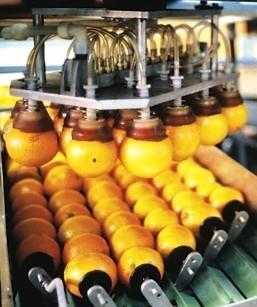
The Trans Pacific Partnership trade deal will help California citrus to compete more effectively in Japan, one of its most-established export markets, as well as boosting its position in Vietnam, a key emerging market.
So says Joel Nelsen, president of the California Citrus Mutual (CCM), a non-profit trade association for citrus growers representing 2,200 members and 70 per cent of the state’s 362,000-acre (146,500ha) citrus production.
“After conversations with authorities in Washington, I have come to the conclusion that the proposed Trans Pacific Partnership Trade Agreement is positive for the California citrus industry,” said Nelsen. “The proposal calls for immediate reductions in tariffs on citrus entering Japan and Vietnam and sets into motion the complete elimination of tariffs within a matter of years.”
The USDA’s Foreign Agriculture Service and Office of the US Trade Representative yesterday published additional details regarding the agriculture-related provisions of the TPP.
Japanese tariffs on US orange imports will be eliminated in six to eight years. In addition, Japan will expand the season when tariffs are lower from June to November to April to November. Meanwhile, Vietnam will eliminate the current 30 per cent tariff on grapefruit and 25 per cent tariff on lemons over a three-year period. It will also eliminate its 27 per cent duty on oranges in four years.
“California has long been disadvantaged relative to other exporters to Japan,” said Nelsen in CCM media release. “Most fresh citrus imported into the US is subject to a 3 per cent tariff or less. In contrast California citrus has been subject to tariffs of over 30 per cent in Vietnam and Japan. Japan is one of the industry’s oldest off-shore customers and Vietnam is an emerging market.”



